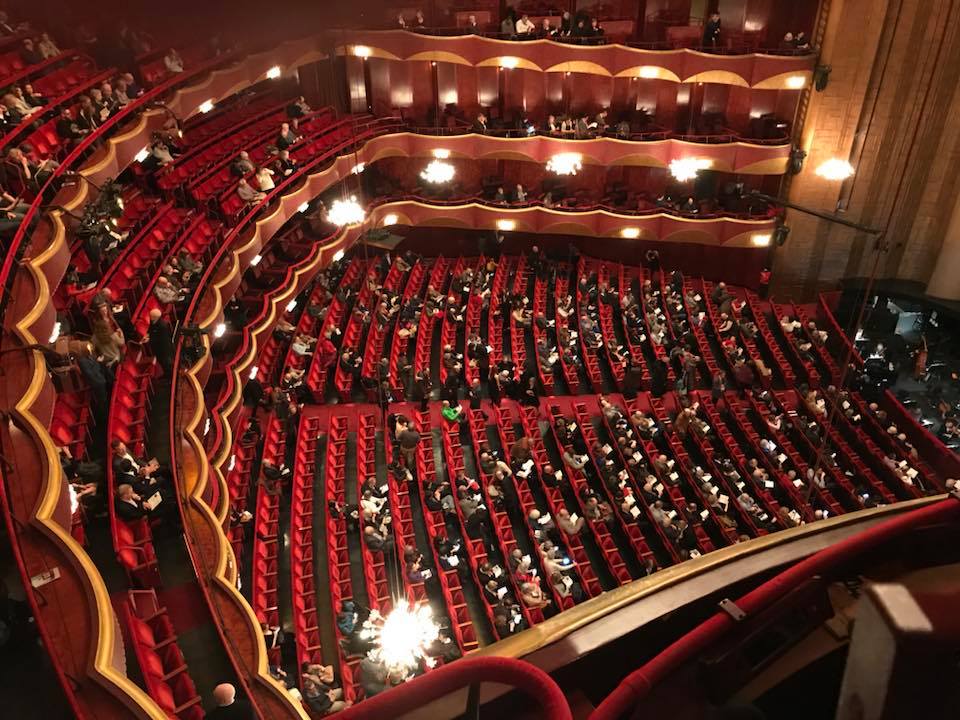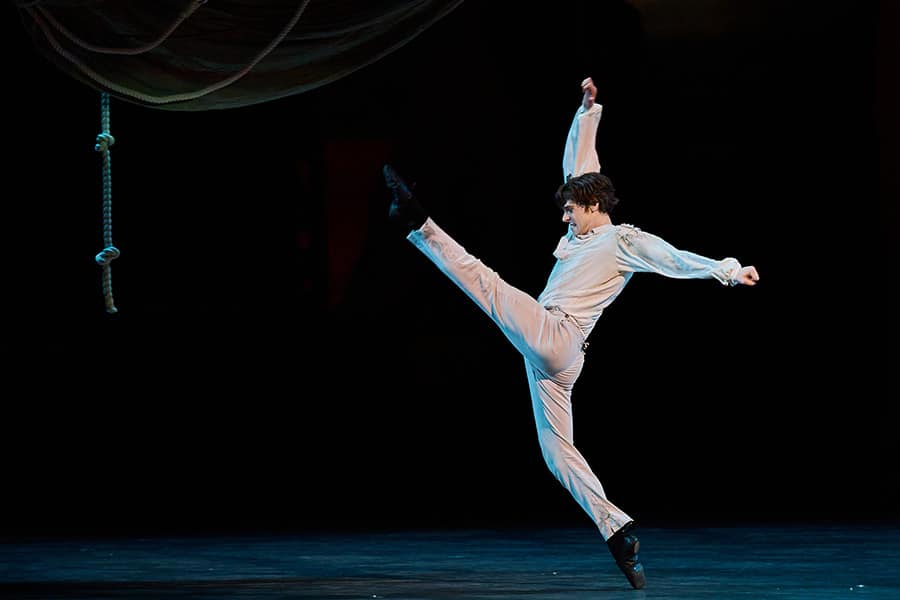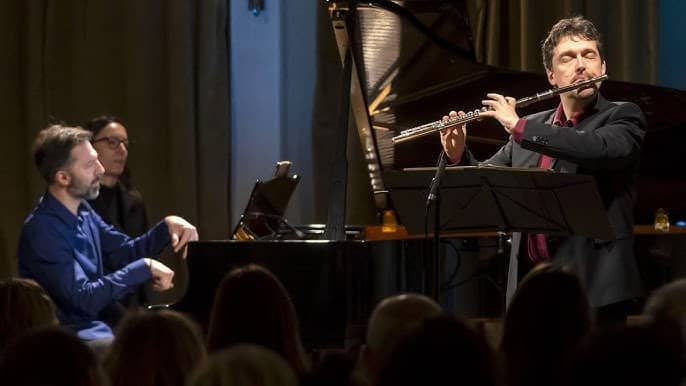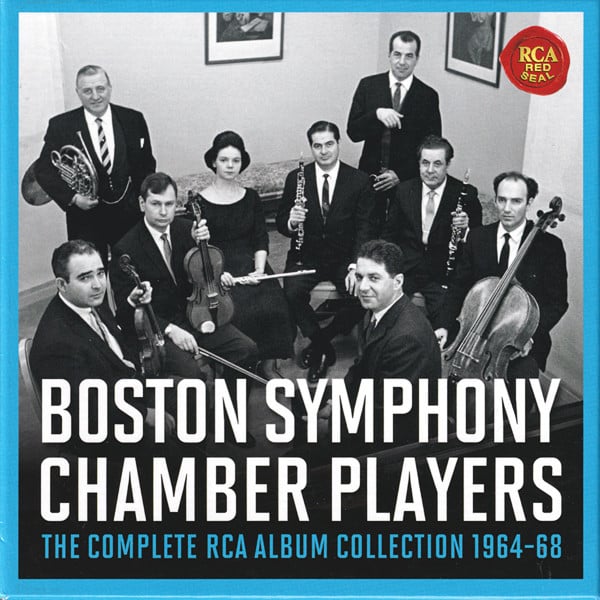Wall Street Journal: Big opera is doomed in America
mainSome typically thoughtful analysis from Terry Teachout in the Journal today, taking in the Chicago Lyric strike and the insoluble Met mess. Nothing is going to work again in those big barns, he says.
…. fresh thinking is essential if opera in America is to survive, and I now take for granted that it won’t come from aging institutions like the Met, much less aging executives like Mr. Gelb, but from newer, scrappier troupes that have never had any choice but to innovate—or die.
Read on here.







Yawn. They have been writing these “classical music/opera is dead” pieces for so long it’s ridiculous.
The NEA data he cites lays it out pretty clearly. Opera audiences have been steadily shrinking.
The article is pretty much just about the Met. NEA data seems overly broad to spell the doom of all major American opera companies. Don’t clutch your pearls just yet!
Why is there a photograph of a concert hall in Munich to illustrate the decline of “opera in America”?
Thank you for changing the photograph to a more appropriate one of the Met.
When I was in school in the ’80s, a half empty Met was unheard of!
I sense a hidden agenda in the argument that small, underfunded opera companies represent the future because they are forced to innovate. The argument becomes a rationalization to justify our dysfunctional system of arts funding. Applying market forces to the arts sometimes solves problems, but most often they doesn’t.
In reality, we see that the countries that spend the most on traditional opera productions also spend the most on smaller, innovative forms of opera and music theater. As a result, most of the innovation in opera is actually happening in Europe.
Germany has 83 full time, full year opera houses while the USA has about six for four times the population. And the majority of Germany’s houses have a well-equipped studio theater for smaller, more experimental forms. Not one of America’s six houses real houses has a studio theater.
It says something about the American mindset, when they claim–not by coincidence in the right wing WSJ–that small companies working with pickup musicians in ill-suited rental facilities for a paltry number of under-rehearsed performances represent our future. In reality it probably does, and the USA will remain a country where opera singers have to leave the country to have careers, where we only have 3 cities in the top 100 for opera performances per year, and that ranks 39th in the world for opera performances per capita. Claims of innovation become a cynical deception.
Paywalled. Someone please post the article. Thank you.
Just got done reading Norman’s book from the mid-1990s about the death of classical music. Well, it wasn’t quite dead when he published the book but the handwriting was on the wall, it was sooooo doomed that it couldn’t *not* die out, and he even sometimes wrote about it in the past tense.
And here we all are.. Still, 25 years later. Some orchestras and opera companies have gone under, though most of the ones that come to mind seem to be victims of bad or overly ambitious growth plans.
Classical music may still die out, but most of us reading this blog won’t be around to see it.
Can’t read the whole thing because of the paywall, but….Peter Gelb is now an “aging executive.” Not that long ago he was the new young guy who was too wrapped up in TV and new technologies, didn’t know anything about the great opera traditions, and allowed too many tasteless Eurotrash productions at the Met.
The transition from rebellious “yoot” to fuddy-duddy Old Guard sure happens fast.
He is both “dangerously yoof-full” and “a fuddy-duddy has-been” both at the same time.
Am I alone in marveling at what goes on in Opera USA even at university level?
When Opera Boston went under it got replaced with Odyssey Opera that does mostly semi-stated concert performances. They’ve done some great stuff too like Massenet’s Le Cid and Zemlinsky’s Der Zwerg.
There’s a small opera company in New York City called Amore Opera which does lots of obscure operas, including: Das Labyrinth, which is a sequel to The Magic Flute with words by the same librettist (Schickenader) but music by a differenet composer; Poliuto, which is a seldom-performed opera by Donizetti whose most recent fully-staged performance in USA when Amore did it was more than 150 years before; The Guilty Mother which is the third in the Figaro trilogy, and others.
The chandelier lights are on-this could be taken well before the performance started
Yeah, big opera may be in trouble, but there are some very nice small opera companies which are just as much fun. In New York City: Amore Opera, Vocal Productions NYC, Regina Opera, Lighthouse Opera; in Palo Alto, the West Bay Opera, plenty of others.
Right now they’re all having a bit of trouble raising money, because donors are sending money to ACLU and Planned Parenthood and other anti-Trump groups and skimping on donations to opera companies.
And the Des Moines Metro Opera – innovative stagings (but not Eurotrash!), many excellent young singers, more established artists who just don’t have voices big enough to fill the Met, War Memorial, Civic Opera House, or other big theaters. All in a unique theater that’s the most intimate venue in which I’ve ever experienced opera. Most performances sold out or with very few empty seats.
So will opera really die? Or will it just adapt?
Good riddance to The Met. Tear it down and put up a new house that sounds like something, preferably like music.